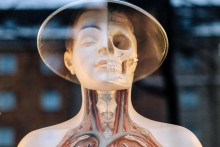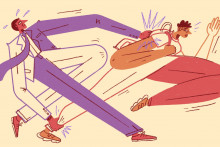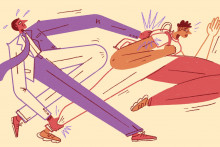Organs are abundant – every healthy human possesses them. Yet, for someone in need of a transplant, there is simply not enough to go around. To combat this deficiency, Dutch citizens are automatically registered as donors and must actively state their objection if they want out. UT students give their opinions on this shift from an opt-in to an opt-out system.
Switch to opt-out
A new bill passed by the Dutch parliament attempts to increase the number of organs available for medical and scientific purposes by shifting from an opt-in to an opt-out registration system. This arrangement automatically makes citizens a donor by default, leaving people to choose not to donate. Once over the age of 18 years, all Dutch citizens will be sent a donation form twice; those who do not specifically object to giving their organs will be registered as a donor. This decision can be changed at a later time, and family of the deceased are able to object upon proof that he or she in fact did not want to be a donor.
At first glance this seems to be an exemplary solution to a long-standing problem, yet with every change in policy comes a profusion of consequences. We asked two bachelor students, Kaz Middelhoek, student of Technical Medicine, and Jasper Stook, student of Chemical Engineering, to give their opinions on just how laudable this new law truly is.
If it were up to you, would you have allowed this bill to pass?
Stook: ‘I strongly support making organ donation an opt-out rather than opt-in system. My father needed a kidney transplant a few years back, so I have experienced first-hand what it’s like to be desperate for an organ. Without it, his life would have been cut short.
The reason why there are so few donors is actually due to sheer laziness on the part of the people. If you only receive one mail asking whether you want to become a donor, the general tendency is to toss it aside and never think twice about it. Automatically enrolling people as donors, unless they specifically request against it, would combat the effect of this lazy indifference.'
Middelhoek: ‘Of course I believe the goal of increasing organ donations to save more lives is agreeable; I’m not a brute who believes in survival of the fittest. Yet, while the purpose of this initiative is good, the way it is carried out is immoral. In a system where you must actively opt out, the government is seizing decisional control over your body by automatically making donation the default decision. Citizens would have to actively defend their rights over their body. Applying this to any other basic human right, it would be absurd to have to actively defend, for example, your right to freedom of speech.’
Are you saying that upholding rights is more important than saving lives?
Middelhoek: ‘Basic rights are essential for a society to maintain order and quality of life. We must stick to our morals, under the justification of saving lives, lest we begin conducting highly immoral practices. As harsh as it is, we need to uphold our ethical guidelines even if it costs more lives. Once we let go of some moral standards, what is to stop the rest of them from following?’
This system implies that, once deceased, our bodies belong to the State. What does that mean for the sanctity of autonomy over your own body?
Stook: ‘After you die, your body is still taken away from your family to be treated during the days before your funeral. You are injected with chemicals; your blood is sucked out of you. What would be the difference with removing your organs for donation?’
Would this system pressure relatives of the deceased to feel guilty about withholding permission to harvest the organs?
Stook: ‘In my opinion, the deceased’s family should not be given a say over what happens to his or her organs – the choice that person made before death should be final. Allowing relatives to overrule their decision defies that person’s autonomy to make definitive decisions about their body. However, I do realize the hypocrisy of my statement: on one hand I am saying your family should not be allowed to make decisions about your dead body, while on the other hand I believe the government should be able to make the same decision over your living body.’
Middelhoek: ‘Adding to your statement, I think your registered choice to be a donor should be categorized as either active or passive: you are registered as a donor either because you actively opted out or because you passively failed to respond. Only if you passively became a donor should your family be able to reject.
Nevertheless, I still stand by my original stance against this system. People should not be automatically registered as a donor just because they failed to actively opt out. A better system would be more in your face to force you to make your decision. If the result is still that people do not agree to give their organs, then so be it. But what matters here is ensuring active decisions; the government should not take citizens’ passive inactivity as a go-ahead to put their organs up for donation.’








